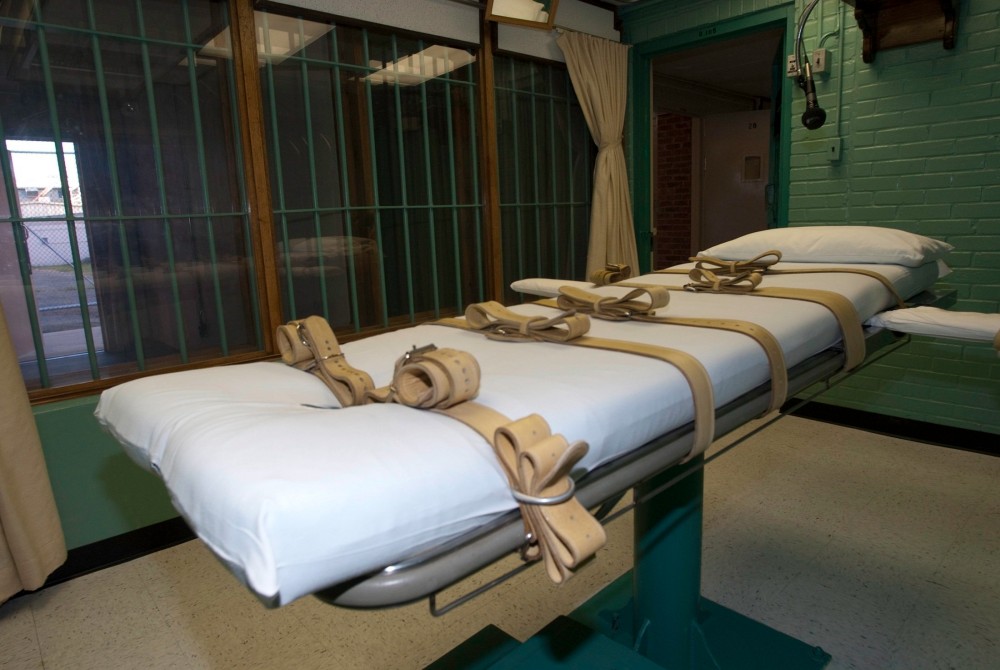
WASHINGTON — Two executions — one in Texas and one in Oklahoma — scheduled for the end of June will be the eighth and ninth executions to take place this year in the United States. They would also be the second executions in each state this year, according to the Death Penalty Information Center.
Catholic Mobilizing Network, a group that seeks to end the death penalty, urged state leaders to stop the executions by lethal injection of Ramiro Gonzales in Texas on June 26 and Richard Rojem in Oklahoma on June 27.
Gonzales, 41, who has been on death row for nearly 20 years, was denied clemency by the Texas parole board on June 24.
A key expert witness no longer stands by his testimony given at the trial of Gonzales, who was 18 years old at the time of the 2001 sexual assault and murder for which he was found guilty.
Gonzales had asked the Board of Pardons and Paroles to recommend clemency, which would allow Gov. Greg Abbott to commute his sentence to life in prison without parole. In the petition, Gonzales and his attorneys emphasized his traumatic upbringing but also acknowledged his rehabilitation and Christian faith as reasons to spare his life.
The board voted 7-0 against recommending a commutation of sentence or a 180-day reprieve. His attorneys said in a statement that they were “deeply saddened and disappointed” by the decision.
“If Ramiro is executed on Wednesday, the world will be a darker place without him,” they added.
Without a clemency recommendation from the board, the state governor is limited to issuing a one-time 30-day reprieve. Gonzales was previously slated to be put to death in July 2022 before the Texas Court of Criminal Appeals granted a stay.
Catholic Mobilizing Network asked its website viewers to contact the Texas governor and urge him to stop Gonzales’ execution.
The site points out that Gonzales is one of the youngest people in the United States to be sentenced to death since the U.S. Supreme Court ruled against imposing death sentences for people under the age of 18.
It also noted that Edward Gripon, a psychiatrist who testified at the trial that Gonzales would pose a future danger to society, has since re-evaluated this testimony and has said: “With the passage of time and significant maturity (Gonzales) is now a significantly different person both mentally and emotionally. This represents a positive change for the better. (He) does not pose a threat of future danger to society.”
Catholic Mobilizing Network also points out that in the almost two decades that Gonzales has been on death row, he has devoted himself to self-improvement, contemplation, and prayer noting that “he is devoutly religious and shares his practice with spiritual advisors and with others on death row.” It also adds that he was recently appointed peer coordinator of the prison’s newest faith-based wing — a position he was removed from when he was given a new execution date this February.
Gonzales has also asked the courts for a stay of execution, arguing he is not a danger to society.
His attorneys have argued that executing him would violate his constitutional rights under the Eighth and Fourteenth Amendments.
Rojem, who is 66, claims he is innocent of his 1984 conviction of the kidnapping, rape, and murder of his 7-year-old stepdaughter. He was denied clemency by the Oklahoma Pardon and Parole board in late June.
On its website, Catholic Mobilizing Network noted that this would be the state’s second execution of the year. The first was Michael Smith on April 4. The state recently instituted a policy to separate executions by 90 days to protect the mental health and well-being of those who conduct the executions.
“We must work for justice solutions that provide healing and wholeness for all people, rather than continued harm,” the Catholic group said.
